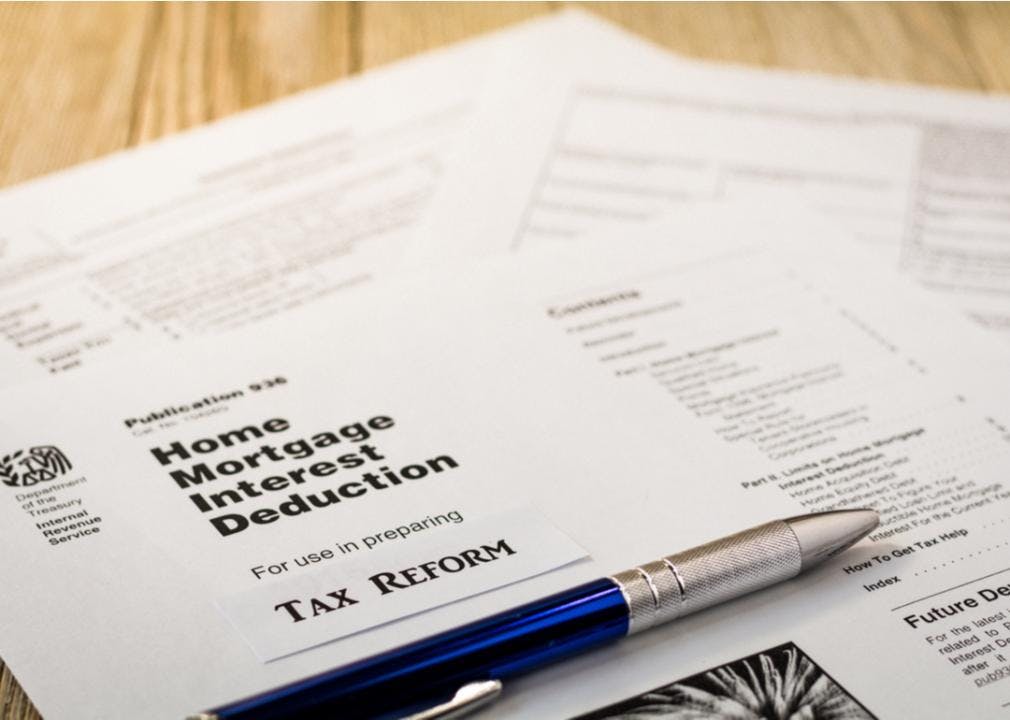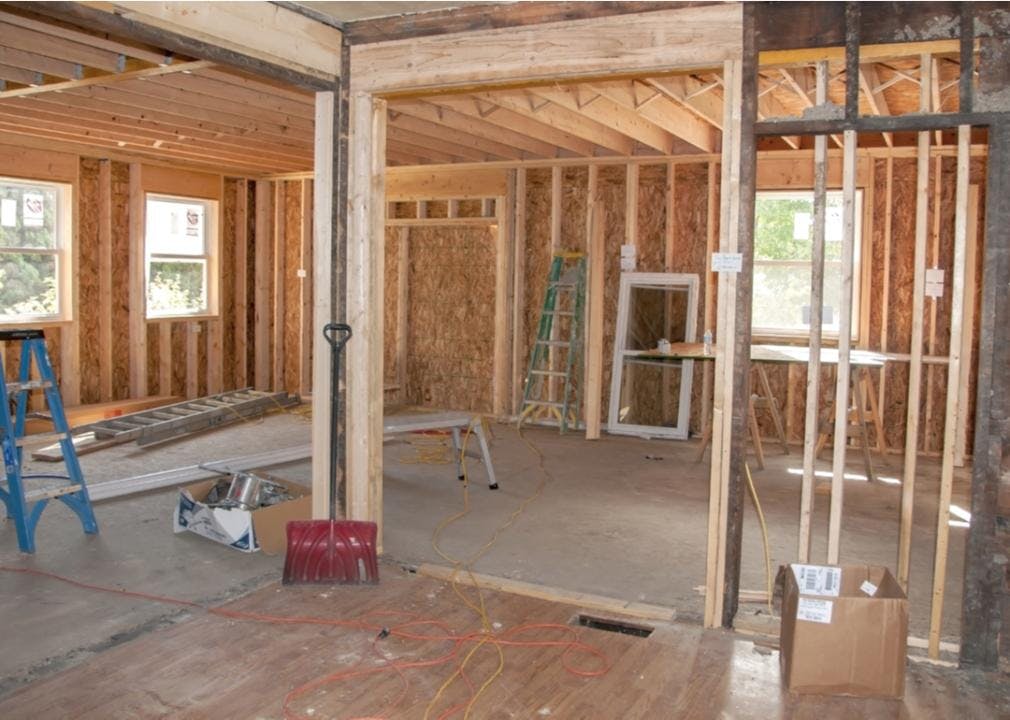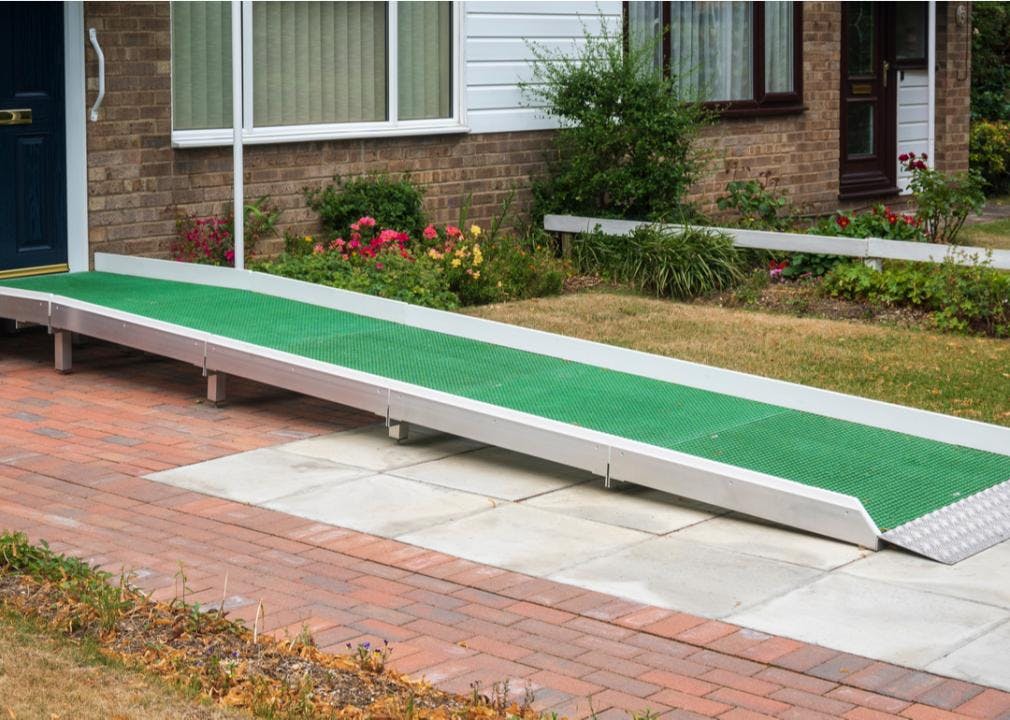These tax deductions may help save homeowners thousands

It can be a big relief to finish the chore of filing your tax return — but it can also leave behind doubts. Did you pay more than your fair share in taxes? Could you have earned a bigger refund?
If you’re a homeowner, there’s a chance you’re leaving money on the table by not tapping into all of the possible ways you can leverage your home to help reduce your overall tax bill.
Homeownership involves a good deal of financial investment not just to purchase a home, but also to maintain it. Renovating a decades-old kitchen or upgrading the plumbing and wiring for 21st-century living can cost tens of thousands of dollars.
That said, homeowners also lend stability to a neighborhood, town, or city.
Recognizing the local, state, and national benefits of homeownership, the IRS allows homeowners to deduct certain expenses of owning a home, such as interest you pay on a mortgage or state and local real estate taxes. However, taking advantage of these deductions often requires you to itemize on your tax return, so you’ll have to figure out whether itemizing your deductions will be more financially beneficial than taking the standard deduction. This also involves keeping detailed records year-round, so you and your accountant have the data ready to go when it’s time to file.
You should always consult your tax accountant or other financial planning professional to understand your unique financial situation. But to better help you understand some of the options available to homeowners, Realm compiled a list of 10 tax deductions that may help save money next tax season using information provided by the IRS and personal finance or tax news outlets.
Read on to see if there are any deductions you missed this year and to plan ahead to see if you can save on next year’s tax bill.

Rabbitti // Shutterstock
Home mortgage interest
Are you paying toward a home loan? The annual interest you pay on your mortgage may be tax-deductible. The IRS allows interest deductions on primary residences — the place where you mainly live — and secondary residences, such as vacation homes. But you need to itemize deductions on your tax return to be able to make this claim.
The IRS has several stipulations about how much you can deduct depending on the origination date of the mortgage. If that date is Dec. 16, 2017, or after, interest on the first $750,000 of debt is deductible. If you’re paying mortgages on multiple homes, this means the total debt of all owned properties.
If you took out a mortgage anywhere from Oct. 14, 1987, to Dec. 15, 2017, the allowable interest you can deduct goes up to $1 million.
For refinancings, the IRS looks at the original date of the mortgage. If your original loan pre-dates Oct. 14, 1987, generally all interest may be deductible.

SAUL LOEB // Getty Images
Homeowners Assistance Fund
If the COVID-19 pandemic made it difficult or impossible to keep up on your mortgage payments or other home-related expenses, you may be able to get financial assistance from the Homeowners Assistance Fund (HAF), a federally-funded program created through the American Rescue Plan Act of 2021. These funds are designed to prevent mortgage delinquencies, defaults, and foreclosures, to stop utility services from being shut off, and to avoid the displacement of families.
While the IRS won’t allow you to claim deductions on the items covered by the grant amount you receive, if the HAF grant covers, say, part of your real estate taxes or home mortgage interest, you may be able to deduct the remainder of these expenses you paid out of pocket. The IRS also won’t count HAF grants as taxable income, which could also save you on your taxes.
The HAF program is administered at the state, territory, or tribal level (or, if you live in Washington D.C., by your city), and many states are currently getting their programs up and running in 2022. The National Council of State Housing Agencies has more information about where to find these programs.

John Panella // Shutterstock
Home equity loan interest
Did you tap into your home’s equity to help finance a remodel, addition, or another improvement? The interest you pay on the home equity loan or home equity line of credit (also known as a HELOC) can be deducted from your taxes.
There are a couple of caveats to deducting this interest. While you can use the money from a home equity loan or HELOC for many large expenses, including paying for higher education, you can only deduct the interest when you use the money to buy or build a home or make substantial improvements to your existing home. Also, the debt from a home equity loan or HELOC gets added to your overall mortgage debt limit, and that overall limit determines whether you can deduct all or some of these loan interest payments.

Jon Bilous // Shutterstock
Property taxes
On Tax Day, it seems like everyone has their hand out: Municipalities, states, and the federal government all want money from you. But when it comes to property taxes, the federal government gives you a little break on the money you paid to state and local governments.
You’re able to deduct state and local taxes you paid on a primary home, vacation home, land, vehicles, and boats. If you sold or bought any of these types of property during the year, you can deduct your share of the property tax, whether or not you paid it.
This deduction doesn’t count on taxes you paid on a property you don’t own or live in, home renovations, energy-efficient upgrade loans, or utilities and services. It maxes out at $10,000.

Sundry Photography // Shutterstock
Capital gains
Typically, if you make money on an asset you sell off, such as stocks, artwork, or investment properties, you have to pay capital gains tax. This is not necessarily the case when it comes to the home you live in, because the IRS allows you to exclude some of the gains realized when you sell your house.
For example, if you bought your house for $200,000 and sold it for $350,000, you wouldn’t have to pay taxes on the $150,000 you made in the sale.
Of course, there are stipulations involved to make sure the claimed capital gains exclusion comes from your primary residence. You have to have owned and lived in the house for at least two of the past five years. And you must not have used this capital gains tax exclusion in the last two years.
Couples filing jointly can exclude up to $500,000 of realized gains; individuals can exclude $250,000. If you don’t meet all of the requirements due to reasons beyond your control — say you divorced and were forced to sell your home — you may be eligible for a partial exclusion.

karamysh // Shutterstock
Mortgage points
Mortgage points come about when you close the mortgage loan on your home. There are two kinds of mortgage points: Origination points, which go toward paying loan officers for their services; and discount points, which reduce your mortgage interest rate, essentially prepaying the interest.
The IRS only allows discount points to be deducted on taxes, as that’s a prepayment of mortgage interest, and home mortgage interest is a deductible expense. Additionally, deductions for points can only be used on a primary residence. Generally, this is not a one-time deduction; you claim it over the entire life of the mortgage.

LStockStudio // Shutterstock
Building a home office for your business
If you are self-employed or have a home-based business and need some office space to run it, you may be able to deduct the expenses involved in maintaining the business part of your home. The IRS does have a few stipulations about what type of space qualifies for a home business though, so be sure to follow their standards. Any space you use for an office has to be exclusively dedicated to your business and you have to use that space regularly for it to count as a home office space.
It’s important to remember that working from home isn’t necessarily the same thing as running a business out of your home. If you have a home office for a telecommuting job, don’t count on being able to take this deduction.

Nimur // Shutterstock
Home improvements for accessibility or medical purposes
Some houses are not conducive for people with disabilities. If it’s necessary to upgrade your home to accommodate a medical condition, you may be able to deduct the costs of installing, operating, and maintaining these upgrades.
Handrails, bathroom grab bars, wheelchair ramps, and accessible-friendly doorknobs are some simple examples of medical home improvements. This regulation also extends to moving cabinetry and electrical outlets to be within reach or adding a lift or elevator to maneuver up and down stairs.
This deduction only qualifies if you must make medical modifications to your home. The cost of the modifications also can’t exceed more than 7.5% of your adjusted gross income. On top of that, if the modification adds to the value of your property, you can’t deduct the increase on the home’s value. For example, if widening all of the doors costs $5,000 and adds $2,000 to the value of your home, you can only deduct $3,000 on your taxes.

Andrey_Popov // Shutterstock
Sales taxes
If you made a lot of big purchases for your home this year, you’ve likely paid a lot of money in state and local sales tax. Can you deduct that sales tax from your federal taxes? If that amount is more than your state and local income tax, it’s possible.
Taking this deduction requires some savvy record-keeping. Yes, you could save all of your receipts and add up the sales tax you’ve paid throughout the year, but you can also use the IRS’ sales tax calculator to come up with good estimates.
Another caveat is that you have to choose between either a sales tax deduction or a state and local income tax deduction—you can’t file both together. The total amount you can deduct for either option tops out at $10,000 total ($5,000 if married and filing separately).
If you do not take the sales tax deduction, you will deduct your state and local income taxes instead, so choose carefully the option that better benefits you.
Story written by: Jill Jaracz
Published by Realm
Get more out of your biggest asset: your home. Realm shows you what your home could be worth & how to access more of its potential value. View more posts